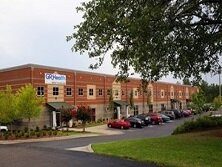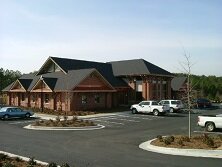 Suffer from Chronic Heartburn?
Suffer from Chronic Heartburn?
Preventing Esophogeal Cancer
If you think chronic heartburn is nothing to worry about, think again.
A Treatment Breakthrough
Physicians at the
Digestive Health Center are offering a new treatment for
Barrett’s esophagus known as HALO ablation therapy. It may be right for people with Barrett’s esophagus who show worrisome pathologic changes on a screening upper endoscopy. During the ablation procedure, skilled physicians deliver targeted heat energy to remove the damaged tissue without harming the normal structures of the throat. It is performed in conjunction with an upper endoscopy in an outpatient setting. No incision is required, and it takes only about 15 minutes. “HALO ablation is a major advance in Barrett's esophagus treatment. It is a safer, faster therapy that has been shown to remove diseased esophageal tissue,” says Dr. Chamberlain.
What Happens if Barrett’s Esophagus Goes Untreated?
Untreated Barrett’s esophagus can result in the development of a type of esophageal cancer with high mortality rates called adenocarcinoma. Most people who develop this cancer are unaware that they have Barrett’s esophagus.
The Next Step
Dr. Chamberlain advises you to see your physician if:
- You have heartburn several times a week
- Heartburn returns after your antacid wears off
- Heartburn wakes you up at night
Looking for a Solution to Your Digestive Problem?
Our
Digestive Health Center can help. It staffs the largest team of gastroenterologists and hepatologists in the area, offers the widest range of tests and treatments, and operates specialty clinics for:
- Motility disorders
- Pelvic floor disorders
- Lactose and fructose intolerance
- Swallowing problems
- GERD/heartburn
- Irritable bowel syndrome
- Gastroparesis
- Constipation
 Suffer from Chronic Heartburn?
Suffer from Chronic Heartburn? 




